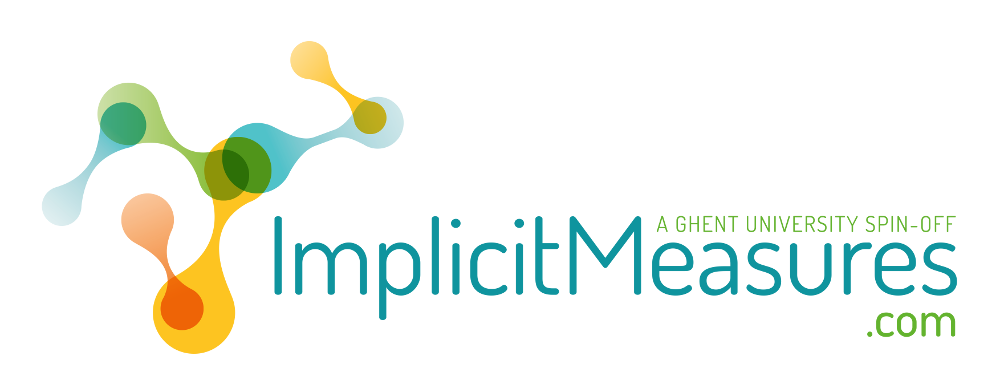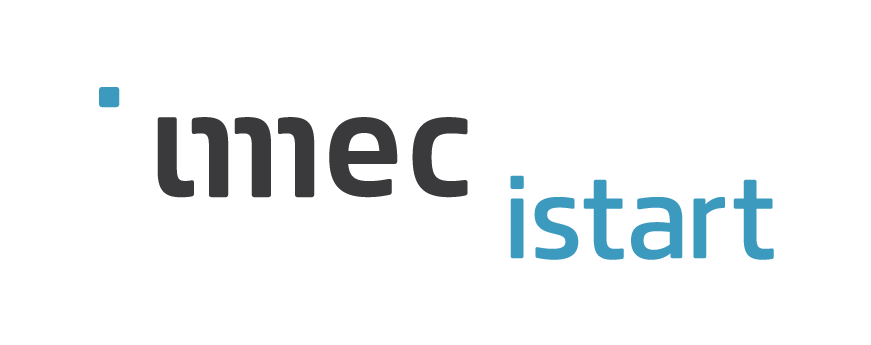First scientific paper using our technology published!
Check out this scientific paper by Leentje Vervoort and colleagues. It is first time that a scientific study using our technology has reached the publication stage. A milsestone for us, but many more are on the way. Interested? You can read the paper here. It's open science, free for anyone!
Date: March 2021
ImplicitMeasures.com in Newsweek magazine (Dutch)
The first edition of the Belgian (Dutch language) edition of Newsweek magazine features a four page article on ImplicitMeasures.com.
You can find the magazine at your newspaper shop, or online on the newsweek.be website (paywall).
Date: September 2019
ImplicitMeasures.com selected by imec.istart
ImplicitMeasures.com is proud to be supported by the imec.istart program.
The imec.istart program offers a broad range of services such as pre-seed funding, industry-specific coaching and mentoring, access to technology, access to working facilities, and access to a broad (inter-) national network of partners and investors. Since its launch in 2011, imec.istart helped more than 150 tech start-ups in diverse fields to develop into sustainable ventures. Imec.istart is ranked 1st in the European ‘Top University Business Accelerators' by UBI Global For more information, see www.imecistart.com.
Date: May 2019
Implicit Online Drug Screening (iODS)

Together with the Agency for Innovation and Entrepreneurship of the Flemish Government, we are developing of an (online) assessment tool to detect (illegal) substance use (e.g., doping, heroin, XTC).
The iODS will consist of a short (online) computer task. Based on the reaction-time pattern of the respondents, it will be possible to estimate the probability that a respondent uses certain substances. This screening tool can be used in addition to medical tests and has the following advantages:
- Time-saving
- Cost-saving
- Non-invasive
- Widely applicable, with no time or geographical restrictions
- Real-time scoring of the test results
- Detection of substance use for which no medical tests are unavailable
The iODS research project also includes a market survey to learn about the requirements this assessment tool must meet for it to be useful for different types of organizations. This survey is available in four languages (German, English, French, and Dutch) and consists of 30 questions (maximum) that can be answered in less than 15 minutes. Participation is completely anonymous (also your IP address is not registered).
Anyone interested is kindly invited to complete this survey via the following link: Start survey
Date: July 2018
Cognitive Bias Modification Therapy
Over the past decade, is has become increasingly clear that maladaptive cognitive biases play a key role in the occurrence and maintenance of addiction (e.g., Deutsch & Strack, 2006).
In close collaboration with psychiatric hospital Heilig Hart in Ieper (Belgium), ImplicitMeasures.com has developed a Cognitive Bias Modification (CBM) program aimed at changing these maladaptive cognitive biases. The CBM program targets both automatically activated approach tendencies (e.g., Eberl et al., 2013; Wiers et al., 2011) and spatial attention biases (e.g., Schoenmakers et al., 2010).
Via the administrator pages, administrators can create and manage user accounts for patients and therapists, create therapy groups, schedule therapy and measurement sessions, retrieve summary reports, etc.
References:
- Deutsch, R., & Strack, F. (2006). Impulsive and reflective determinants of addictive behavior. In R. W. Wiers & A. W. Stacy (Eds.), Handbook of implicit cognition and addiction (pp. 45-57). Thousand Oaks, CA: SAGE.
- Eberl, C., Wiers, R. W., Pawelczack, S., Rinck, M., Becker, E. S., & Lindenmeyer, J. (2013). Approach bias modification in alcohol dependence: Do clinical effects replicate and for whom does it work best? Developmental Cognitive Neuroscience, 4, 38-51.
- Schoenmakers, T. M., de Bruin, M., Lux, I. F. M., Goertz, A. G., Van Kerkhof, D. H. A. T., & Wiers, R. W. (2010). Clinical effectiveness of attentional bias modification training in abstinent alcoholic patients. Drug and Alcohol Dependence, 109, 30-36.
- Wiers, R. W., Eberl, C., Rinck, M., Becker, E. S., & Lindenmeyer, J. (2011). Retraining automatic action tendencies changes alcoholic patients' approach bias for alcohol and improves treatment outcome. Psychological Science, 22, 490-497.
Date: September 2017
Website Released!
ImplicitMeasures.com just released its official website. Because we strongly believe in the strengths and merits of Free and Open Source Software (FOSS), the entire website was built using FOSS solutions.
The main website relies on the Drupal CMS (content management system) framework. Drupal takes care of the 'heavy lifting' while additional content (like this news item) can be added in an easy and straightforward manner. We are proud of Drupal, as it was created by Dries Buytaert who studied engineering at Ghent University. Over the last 15 years, Drupal has evolved into a widely used framework. It is now the engine behind major websites like BBC.com, Whitehouse.org, and millions of others.
The general layout of the ImplicitMeasures.com website was based on the Drupal skeleton theme, but we customized this theme extensively to fit our needs and taste. The company logo and website icons were created by Erika Vanhulst (see her other work on Grafisserie.be). Our support ticketing system is powered by osTicket, another successful FOSS tool. We run osTicket on our own servers for privacy and security reasons.
The only external service is Clicky, which is used to log and analyze the website visits. We can see from which country each visitor comes, which pages were viewed, how often he/she returns, etc. Of course, all this happens in a strictly anonymous way. If you prefer not to be tracked, you can disable cookies for our website (see how on Wikihow). More information on how we value your privacy can be found on our Privacy Policy page.
If you have any questions or suggestions about the functionality or layout of our website, please do not hesitate to drop us a line. Contact details can be found on this page.

